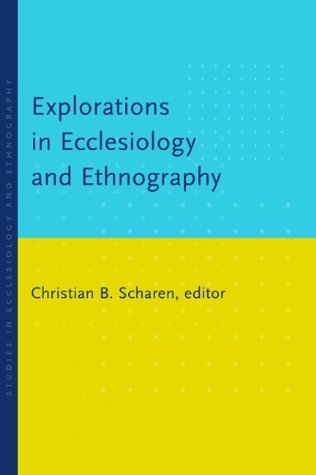Kindle Notes & Highlights
Read between
October 15 - November 9, 2019
No ethnographies emerge “from nowhere”; all are a product of a particular — or several — individual(s), located within a particular cultural and academic context, the result of a particular set of questions being asked in a particular way of a particular community at a particular time. If the context of the community under study is historically situated, so is the context of the ethnographer conducting the study. These constraints are inescapable, and the question of how they are negotiated through practical research strategies and epistemological discussion is not easily resolved. Many
...more
However, ethnography may only be emancipatory if there is an effective separation of leadership structures and the ethnographic voice, with each thereby operating within a mutually critical — perhaps prophetic — relationship. Practicalities stand in the way of this ideal model in this context because those church members most available, able, and willing to act in the role of ethnographer are also in many cases their priests or ministers.
To address this, we are proposing here a model we are calling “collective ethnography,” with practitioners empowered by the academic (and ecclesiastical) community to be ethnographers of their own churches and to build a picture of themselves via conversations enhanced by engagement with others in their church, and with those in other churches, hence facilitating an ongoing dialogue with multiple nodes of activity. This model avoids the danger of standardization and homogenization, our first challenge, by elevating the status of all ethnographic voices to an equal level, each holding the other
...more
“Hence the whole universe less incompletely than one alone shares and represents his [God’s] goodness.”
deeper perspective on what it means to think of theology as a process not just of understanding God but of all things in relation to God as their source, sustainer, and consummation. This is not simply about completing our knowledge of things by bringing them into explicit relation with the only finally adequate perspective within which to understand them. It is every bit as much about the deepening and enriching of our theological understanding through asking after the myriad particular ways in which something of the goodness of God is shown in and through finite, created reality — albeit
...more
is here that we require, even for ultimate theological purposes, the services of the focused perspectives of the methodologically naturalist disciplines. While our prior starting point might appropriately be with explicitly theological convictions concerning, for example, all things having their origin, being, and end in the trinitarian life of God (or concerning the church being the Spirit-indwelt people of God), and while we might appropriately intend to end up asking how the given area of finite, created reality in question — whether the laws of physics or an aspect of the life of the
...more
at the heart of the assumed role of Christian theology in RE&LC is that it is a process of “critical reflection on Christian practice” — we might add also “constructive reflection” — with a view to diagnosing its ills, whether conceptual, historical, hermeneutical, or practical, and enhancing the quality of this practice.36
Twenty street pastors who are working in the main cities of the Netherlands took part in several meetings in which questions were asked like these: Is there common imagery in the rich stories street pastors tell? Can these images and metaphors be embedded theologically? What are the “theological foundations” on which this type of pastoral care is grounded?
proprium of
First, we see how the pastors view the people they work with in a theological way
Second, we see how the intentions of the pastors shape their actions.
Third, there is a receptive attitude, and they feel a strong obligation to have this attitude.
Fourth, the pastors strive for reciprocity. Fifth, there is a focus upon establishing relationships and enabling people to tell their stories.
would call it a theology of affirmation. Respectfully, the pastors sit beside them, where others do not wish to do so. They see their grandeur and their misery and see that the homeless long for warmth, love, and kindness.
In these relationships there is an attentive openness for an “epiphanic moment.”
On the one hand, their approach is marked, colored by what Baart has labeled the “presence-approach” (Baart 2001). Attentiveness, being there, mutual recognition, unconditional acceptance, being open for surprises, and being approachable are all important.
Furthermore, these pastors not only intentionally locate the nearness of God in these encounters, but they name it or even proclaim it. These pastors look for life-giving images — like the Rose of Jericho — that can encourage and give hope. At times, a pastoral countervoice can be necessary, precisely because someone’s life is going downhill. In the pastors’ descriptive moments in which this happened, it is striking. In these encounters in which one listens to silences, the sight of God can be opened (Bons-Storm 1989, 21). The imagination of the pastor is very important. This is the heart of
...more
Again and again I saw how pastors do not only want to listen but also want to learn from the homeless, and how they are inspired by them. One pastor told of being surprised by hearing “Silent Night” played on a mouth-organ and experienced it as a gift. Another told how fascinating it is when people tell about a connection they have with a biblical story and what it means to them.
Naming this reciprocity also serves to safeguard and protect the integrity of the agenda. What do you want from me? Do you want to bring me something or can I give you something, too? Do you want to help me and should I be grateful, or can I be there for you, too? Do you have a hidden agenda? Being transparent is essential.


